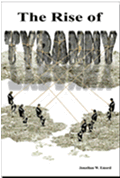By Rob Pell
March 18, 2014
NewsWithViews.com
Keep Big Pharma Out Of The Bedroom And It Will Be
Sleep is very important, we spend nearly a third of our life doing it. But even though sleep is crucial to our health and well-being, research shows that relying on prescription drugs for sleep is very likely to be dangerous.
Dr. Charles Czeisler, head of the Division of Sleep Medicine at Harvard Medical School said, “sleep is the third pillar of health, along with exercise and eating well.” Sleeping for seven to eight hours a night has been proven to positively impact blood pressure, memory, immunity, mental health, obesity, longevity and much more, compared with sleeping less than six hours a night.
A number of critical body functions occur during sleep. Regardless of age (although to a much greater degree in children and adolescents), our pituitary glands pump out human growth hormone (HGH) during deep sleep, facilitating the growth and repair of bones, muscles and virtually all body tissues.
During sleep the flow of cerebrospinal fluid surrounding the brain increases dramatically, washing away waste proteins that accumulate during waking hours. Build up of these wastes has been linked to Alzheimer's. This phenomenon has been conclusively observed in laboratory animals by Dr. Maiken Nedergaard, a professor of neurosurgery at the University of Rochester and author of a recent sleep study published in Science.
Penelope Lewis director of the Sleep and Memory Lab at the University of Manchester in England says that during the day our brains observe, see, hear and learn lots of information. During deep sleep is when we organize it – reinforcing and filing the important and deleting the irrelevant. Many college students know that pulling an all-nighter to cram for a test is not nearly as effective as studying for a few hours a night, then sleeping well and letting the information sink in for the days days leading up to the exam – even if the total study time is the same.
As vitally important as sleep is, sleep induced by artificial chemicals is probably not worth the risk. Specialists warn to exercise caution before taking sleep medications. "We're not certain, but it looks like sleeping pills could be as risky as smoking cigarettes," said Dr. Daniel F. Kripke professor emeritus at the University of California, San Diego, and founder of one of the country's first sleep clinics.
In a recent sleep study, a team of researchers led by Dr. Kripke studied over 33,000 people for an average of over 2.5 years. The death rate for people not using sleeping pills was 1.2% versus 6.1% for people with sleeping pill prescriptions. Even those who used 18 or fewer sleeping pills a year had a 3.6-fold higher death risk than people using no sleeping pills. Kripke and colleagues estimate that sleeping pills are linked to 320,000 to 507,000 U.S. deaths each year. Often people using sleeping pills have underlying health problems that contribute to their insomnia. However, the increase in mortality rates Kripke observed was even after controlling the study to take into account age, sex, lifestyle factors, and underlying health problems.
Kripke also said, "there's no objective evidence that sleep medications help people perform better the next day. The majority of studies show they impair performance the following day."
The FDA recently acknowledged that sleep inducing sedative drugs containing zolpidem (brand names Ambien, Edluar, Zolpimist and Intermezzo) created a serious risk of injury due to morning drowsiness. The problem is that no sleeping pill remains in the blood all night, impairing consciousness, and then suddenly evaporates at the moment of awakening. Also, a large percentage of people who take sleeping pills do often get up at night, at a time when the sleeping pill could cause falls or confusion.
Most prescription sleeping pills, when taken at bedtime, will remain in the blood with at least half strength when morning comes. According to Dr. Kripke, almost all sleeping pills produce immediate impairments of memory and performance and there is extensive evidence that sleeping pills, on average, impair performance and memory on the following day. Lunesta is especially likely to produce a few hours of morning impairment, particularly among people over age 60. These side effects are especially true for women, who are generally smaller and metabolize these drugs more slowly than men.
Further, sleeping pills cause people to have more depression. The sleeping pill arm of Big Pharma would like you to believe that insomnia leads to depression, which may be true some of the time. However, the implication that prescription sleep medications prevent depression is simply not true. Controlled trials of four different common sleep medications show a higher rate of developing depression among those given the sleeping pills as compared to those given a placebo.
In addition, sleeping pills can have some very strange effects – occasionally comical, often dangerous. Sleeping pills turn off our brain cells, but not always all parts of the brain to the same degree. There are documented stories of people sleep walking to their kitchens, preparing and consuming elaborate meals, and waking up with no memory of their nighttime escapades. There have also been reports of people under the influence of Ambien who, while sleeping, walked to their cars, got in, went for a drive and got into serious collisions.
Sleeping Should Be Simple
For thousands of years, humans naturally allowed the sun and the seasons to determine their sleep-wake cycle. Man is not naturally a nocturnal animal. Each day, when darkness arrives and the temperature drops, our body's pineal gland begins to secrete melatonin, the sleep hormone. Within a few hours, sleep should naturally follow. This natural health promoting cycle (our circadian rhythm) is disrupted by artificial lights, late night TV watching and computer use. Negative effects from sleep disruptions effect all body systems.
Natural factors you can optimize to improve sleep
Sleep in complete darkness, or as close to it as possible. If that's not feasible, wear an eye mask to block out stray light. Little bits of light pass directly through your optic nerve and can signal your brain that it's time to wake up. If you get up use the bathroom in the middle of the night, if possible, avoid turning the light on. A dim red nightlight can help. Red has the least power to suppress melatonin and shift circadian rhythms.
Optimal bedroom temperatures for sleeping are from 60 to 68 degrees
Keep regular hours. Maintaining a regular bed time and wake time (even on weekends) will reinforce your circadian rhythm.
Avoid caffeine. Often an afternoon (or even morning) cup of coffee or tea will keep some people from sleeping well at night. Coffee, as well as less obvious caffeine sources such as soft drinks, chocolate, coffee-flavored ice cream, and tea, must all be eliminated if you have trouble sleeping.. Even small amounts of caffeine found in decaffeinated coffee or chocolate, may be enough to cause insomnia in some people.
Avoid alcohol. Alcohol will make you drowsy, the effect is short lived and you will often wake up several hours later, unable to fall back asleep. Alcohol can also keep you from entering the deeper stages of sleep, where your body does most of its healing.
Exercising for at least 30 minutes per day can improve your sleep. However, don't exercise too close to bedtime or it may keep you awake.
Stress reduction and balancing negative emotions often significantly improve sleep Scientists often find increased blood levels of cortisol, a stress hormone, in people with chronic insomnia, suggesting that these individuals suffer from sustained, round-the-clock activation of the body's fight or flight stress response. This constant state of hyperarousal can dramatically interfere with normal sleep. Exercise, laughter, listening to your favorite music, relaxation response breathing techniques, and practicing yoga or tai chi can all dramatically reduce stress levels.
Using a cell phone immediately before going to bed (especially for a long call) can cause insomnia and may also cut your amount of deep sleep, interfering with your body‘s ability to refresh rebuild and repair itself.
Avoid nighttime drops in blood sugar (nocturnal hypoglycemia): if you fall asleep but cannot stay asleep more than a few hours, it make be due to your blood sugar falling in the middle of the night. Your brain needs sugar to dream and carry out other functions through the night. When there is a drop in blood sugar, it triggers the release of the hormones, including cortisol and adrenalin. They help signal the brain that it's time to eat. While I generally don't advice eating before bed, for some people, eating a small snack that includes complex carbohydrates and protein (like a slice of whole-grain bread with some almond or peanut butter) can help to stabilize blood sugar and facilitate a good night's sleep.
Caution: If you have taken a prescription sleeping pill regularly for more than a month, eliminating the drugs suddenly may induce dangerous withdrawal symptoms such as: anxiety, irritability, panic, insomnia, nausea, headache, impaired concentration, memory loss, depression, seizures, hallucinations, and paranoia. For some people, slowly weaning yourself off these drugs is better than going cold- turkey.
Natural supplements to improve sleep:
There are many safe, effective natural supplements that can be very helpful to fall asleep and stay asleep. Formulas containing (separately or together) valerian, chamomile, passion flower, skullcap melatonin, GABA and others have received hundreds of thumbs-up from my customers. GABA can be especially effective in relieving anxiety related sleep problems.
| Subscribe to NWV Southern Oregon Edition Alerts! |
Magnesium-calcium combinations (with more magnesium than calcium) are also helpful.
Lavender oil applied to your pillow is often all that is needed for a good night's sleep.
You need quality deep-sleep just as much as you need clean food, water and air. If you have trouble getting to sleep or staying asleep, more than once or twice a month, you should engage one or more of the natural sleep aids or techniques. They are infinitely safer and ultimately far more beneficial than prescription knock-out drugs.
© 2014 Robert Pell - All Rights Reserve
Rob Pell
owns and operates Sunshine Natural Foods in Grants Pass, Oregon and
has 35 years experience helping people with natural foods, products,
 exercise
and healing.
exercise
and healing.
Website: Sunshine Natural Foods
E-Mail: RobertPell9@gmail.com












 Share This Article
Share This Article




